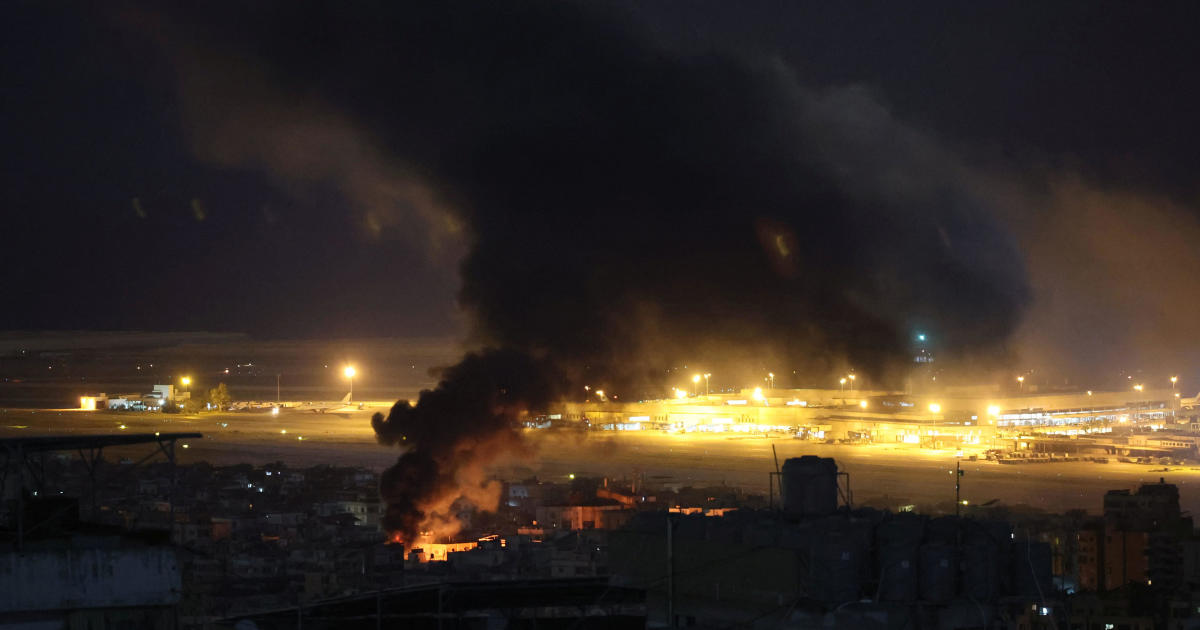The ongoing conflict between Israel and Hezbollah has intensified significantly, with recent Israeli airstrikes targeting Lebanon causing widespread displacement and destruction. The escalation follows an alleged assassination attempt on Israeli Prime Minister Benjamin Netanyahu, attributed to Hezbollah, prompting a retaliatory response from Israel. This latest round of violence has raised serious concerns about regional stability and the potential for further escalation, highlighting the complex dynamics and devastating human cost of the conflict. The humanitarian crisis unfolding in Lebanon demands urgent international attention and action to alleviate the suffering of civilians caught in the crossfire.
Israel’s Airstrikes on Lebanon
Targeting Hezbollah’s Finances
Israel’s recent airstrikes on Lebanon primarily focused on dismantling Al-Qard Al-Hassan Association, an institution Israel identifies as Hezbollah’s financial arm. The IDF alleges that this organization plays a crucial role in funding Hezbollah’s military operations, including weapons procurement and payments to operatives. The IDF claims Al-Qard Al-Hassan holds billions of dollars, some directly held under Hezbollah’s name, across Lebanon. This assertion is based on extensive intelligence gathering and analysis; however, the precise details regarding the financial links are not publicly available, leaving room for speculation. The IDF has declared its strikes aimed at crippling Hezbollah’s financial capabilities, severely impacting its operational capacity. This strategy aligns with broader Israeli aims to weaken Hezbollah and curb its destabilizing influence.
Civilian Casualties and Humanitarian Impact
The Israeli airstrikes have had a devastating humanitarian impact on Lebanon. Reports from various news organizations depict a worsening crisis, with over 1.2 million Lebanese citizens displaced and many forced to seek refuge in makeshift shelters due to the violence. The indiscriminate nature of some strikes, targeting locations close to Beirut’s international airport, underscore a broader humanitarian crisis that affects the healthcare sector and public utilities. Already overwhelmed hospitals are struggling to cope with an influx of casualties, hindering access to medical care. The extensive damage caused by these operations leads to immediate necessities of shelter, water and medicine that is needed. International humanitarian aid organizations have voiced their urgent concern, advocating for immediate assistance to the victims and condemnation of indiscriminate targeting of civilians.
Hezbollah’s Role and the Regional Dynamics
Hezbollah’s Actions and Retaliation
The escalation in Lebanon stemmed from an alleged drone attack on Israeli Prime Minister Benjamin Netanyahu’s residence, which Israel directly attributes to Hezbollah. This brazen attack significantly escalated tensions and triggered Israel’s extensive response, involving numerous airstrikes against targets linked to the Iranian-backed militant group. While Hezbollah hasn’t claimed responsibility for the attack, the act is perceived as a clear escalation from previous operations, suggesting a more aggressive and potentially desperate approach. Israel’s retaliatory response highlights its zero-tolerance approach to attacks targeting its high-profile officials. The chain reaction highlights the dangerous implications of escalating actions.
Iran’s Influence and Regional Instability
Iran’s role in the conflict adds another layer of complexity and significantly increases the regional instability. The ongoing conflict is not just about an individual nation’s security concerns, but also mirrors the long-standing tension between Iran and Israel and the growing conflict throughout the region. Hezbollah operates as Iran’s primary proxy force in the region, and thus the actions of Hezbollah frequently mirror actions in the Israeli and Iranian relationship. This dynamic is further complicated by the support which Hezbollah receives from its allies in both Iraq and Syria, complicating both regional stability and the conflict itself. The continuing war creates a risk of greater involvement from other nations which risks spilling the current conflicts into the rest of the globe.
International Response and Future Outlook
US Involvement and De-escalation Efforts
The United States has responded to the ongoing conflict with both military aid and diplomatic initiatives. The delivery of a THAAD missile defense system to Israel demonstrates the commitment by the US to supporting Israel. However, despite support, the US has indicated they will not assist with direct military actions against Iran. The continued focus by the US on both conflict de-escalation and maintaining a regional peace emphasizes a cautious approach in a very tense region. This continued cautious approach emphasizes both the complicated regional implications as well as an avoidance of further unnecessary conflict which might be perceived as aggression by any nation, including those directly involved. Further diplomatic efforts might become a keystone to ending this regional conflict peacefully.
Long-Term Implications and Humanitarian Concerns
The prolonged conflict presents significant challenges regarding the sustainability of peace throughout the Middle East. The humanitarian crisis continues to cause significant damage and risks creating lasting long term societal damage in the affected region. The repeated escalation between nations, particularly across various regions, suggests a potential shift in dynamics and strategies regarding the conflict itself. International concern towards the worsening conditions, coupled with attempts at de-escalation through diplomatic pressure, highlight the dire need for a lasting solution. Until the parties reach a sustainable peace agreement the long-term prospects for civilians and the security and peace throughout the Middle East remain grim.
Takeaway Points:
- The recent Israeli airstrikes in Lebanon have resulted in a major humanitarian crisis, displacing millions and overwhelming healthcare systems.
- Israel’s actions are aimed at weakening Hezbollah’s financial capabilities and military operations.
- Iran’s influence significantly exacerbates the conflict and contributes to regional instability.
- The US is providing military support to Israel while also engaging in diplomatic efforts to de-escalate the situation.
- The long-term outlook remains uncertain, with concerns about the continued humanitarian crisis and regional stability.




